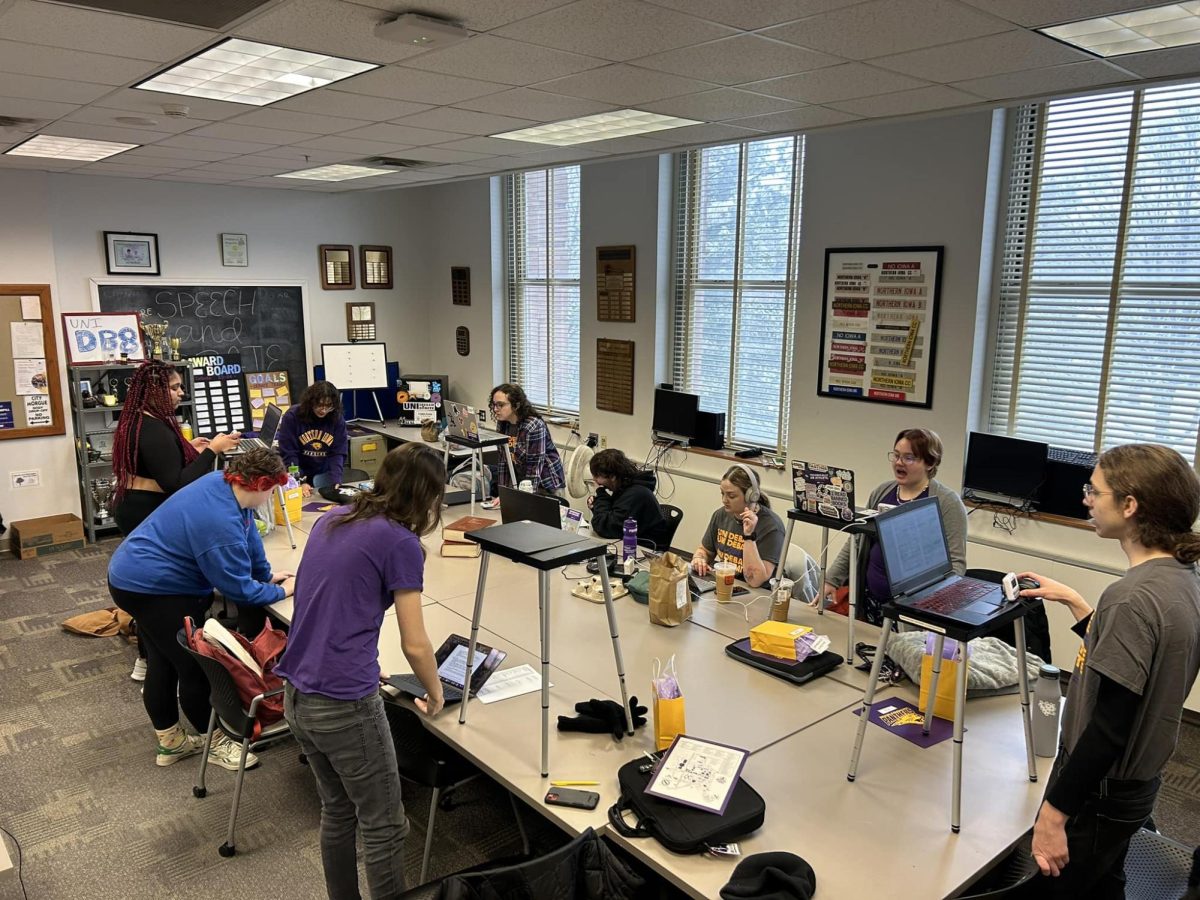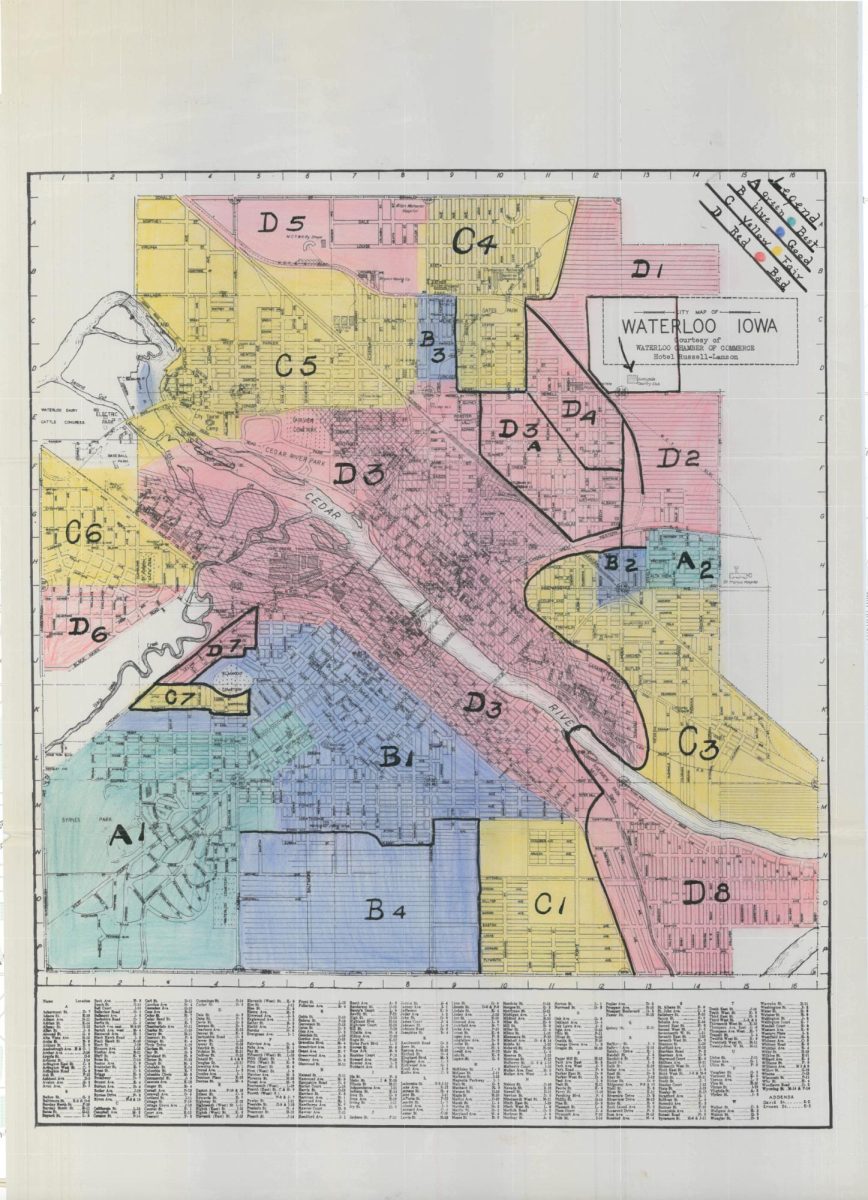Imagine driving down the road on an ordinary afternoon. You pick up your cell phone and start reading a text, when suddenly you ram into the car in front of you. Your head jerks forward and hits the windshield. There you sit with a concussion and a crushed car – all so you could simply read a text message.
This is the sort of thing that sophomore nursing major Whitney Wagner experienced. Ever since she was in a crash that involved texting while driving, Wagner has changed the way she views the issue.
“I don’t do it anymore because I was in a crash,” she said.
In a world where cell phone usage and texting is on the rise, texting while driving has become a growing concern. Texting while driving is considered a form of distracted driving. According to the National Highway Traffic Safety Administration, a distraction is anything that takes your eyes off the road, your mind off the road or your hands off the wheel. Distracted drivers account for almost 80 percent of all crashes and 65 percent of near crashes in the United States.
Every day in 2008, more than 800,000 people were texting, making calls or using a handheld cell phone while driving in the United States. This distracted driving killed nearly 6,000 Americans in that same year.
These days, society seems to be addicted to cell phones. Many people can’t go a minute without using their cell phone, which is why so many people feel the need to text while they drive.
“My travel during the day, I probably see 40 percent of people or more on phones somehow or another,” said Doug Widen, University of Northern Iowa Public Safety Lieutenant. “We get reports all the time on police radio where cars will be called in to the police dispatchers and say that there is a person texting while driving swaying in the lanes.”
Wagner said she feels dependent on her cell phone.
“If I don’t have it I feel strange,” she said.
Josh Ostrem, junior electronic media major, said he is constantly using his cell phone.
“It keeps me communicated with the people I need to communicate with on a daily basis,” he said. “I am constantly texting. I probably text way more than I call.”
According to the Virginia Tech Transportation Institute, a car driver dialing a cell phone is 2.8 times more likely to get into a crash than a non-distracted driver. For every six seconds of drive time, a driver sending or receiving a text message spends 4.6 of those seconds with their eyes off the road. But despite these statistics, people continue to argue about the real dangers of texting while driving. Some people think it’s not a big issue, while others think it’s extremely dangerous.
“I think a lot of people are really stupid about it,” said Whitney Jackley, senior public relations major. “When you are in the middle of really busy traffic I think it’s a really bad idea, but if you are sitting at a red light, I think it’s okay.”
Widen feels that texting while driving isn’t worth the potential consequences.
“One slip-up on a phone is going to cause you a lifetime full of grief,” he said. “(If there was an accident you caused) you would have to live with that the rest of your life.”
“Think about what you’re doing, think about what could happen. Seconds can change lives. Not hours, not minutes, not days, but seconds can change lives. You can’t turn the clock back.”
Ostrem feels texting while driving is dangerous, but only to a certain extent.
“I think it’s fine if you are able to do it,” he said. “If you don’t really know how to text you shouldn’t do it at all. It distracts you a lot, but if you’re good at it I guess you can get away with it.”
But Iowans might not be getting away with it much longer.
Marshall County and Marshalltown, Iowa are looking at potentially enforcing bans on texting while driving. If these potential bans spread to other parts of the state, Iowa could see a ban on texting while driving sometime in the near future.
Eighteen states have passed laws banning texting while driving a vehicle. Nine of these states have passed this ban for minors only. If this legislation continues to grow, Iowans could see themselves thrown into the mix.
Some people question how well these laws will be able to be enforced.
“If there was a law, it would probably be a good idea to enforce one, but I think it would be hard to enforce,” Ostrem said. “You could probably hide your phone.”
Widen doesn’t feel it would be so simple for people to get away with texting while driving if there was a ban.
“I don’t think it would be hard to enforce,” he said. “If you have your head down at a green light, obviously you are doing something.”
Widen said that bans against texting while driving would probably be similar to the smoking bans. He thinks that texting while driving would be more of a civil crime than a criminal crime. He said he could see texting while driving bans having fines similar to the smoking fines – about $50 to $75 if the laws are passed.
Texting while driving has been called the equivalent of drunk driving, but Widen says texting while driving is more like buzzed driving.
Jackley feels that texting while driving is dangerous, but not quite to the extent of drunk driving.
“I think texting while driving is bad, but drinking and driving has to potential to cause much worse accidents,” she said.12







